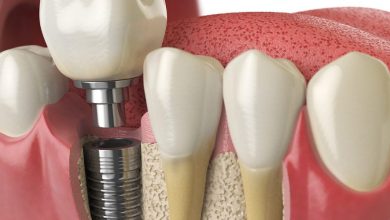
Credentialing Services: Make Your Practice Profitable
There are numerous procedures in the medical industry, such as medical billing solutions. One of these is the formal process of credentialing, which follows a set of guidelines to ensure that patients receive the greatest care from medical professionals. For individuals who have through the strictest testing for their practice eligibility, medical credentialing services are crucial.
Patients can rest easy knowing that their medical requirements are being fulfilled by specialists who adhere to accepted standards for training, education, licensure, and medical practice thanks to credentialing. Credentialing mandates that all healthcare workers adhere to the same standards.
How Providers Can Benefit from Credentialing Services
Best practices are established by modern healthcare methods to deliver a quick, satisfactory result. The following are the benefits for efficient medical credentialing:
Starting earlier with credentials
Please start the credentialing process right now. Gather references, resumes, up-to-date contact information, and any other required documents before starting the process. Long medical credentialing processes could significantly affect your cash flow and reimbursement.
While the majority of businesses would argue that 90 days is more than enough time to start and finish the operation, we advise starting it 150 days in advance to give yourself enough time to do it.
1. Constantly update your doctor’s contact details
Effective communication is essential at every level of the process because medical credentialing frequently requires many submissions. There may be a delay in direct communication while dealing with credentialing or re-credentialing issues. Make certain that your office management or credentialing organizations have complete, up-to-date contact information for every doctor.
2. Credentialing businesses will make sure the procedure is quick
Some individuals might prefer to outsource their medical credentialing services, while others may choose to manage them inside. Whichever route you take, selecting a credentialing coordinator will help you complete the process prior to deadlines and expirations. He or she could send out prompt reminders to stop credential expiration.
3. Be Aware Of Local Laws and Rules
Understanding the credentialing process could greatly increase practice effectiveness and cash flow. Depending on the payer, other state credentialing agencies, and restrictions particular to your state addressing physician credentialing, there may be reciprocal agreements.
It suggests that a payer may expedite the credentialing procedure in another state if you have an account with them in one state.
Credentialing difficulties may be expensive and decrease productivity, so it’s important to have a process in place and a plan for making sure credentials are always up to date. You might think about having the process handled on your behalf by professional medical credentialing services.
4. Use state-of-the-art software for monitoring
You don’t have to depend on the administrative staff to manually check on your compliance. A cloud-based charging system allows you to easily keep tabs on your credentialing status from any location at any time. These platforms give you the chance to set up notifications that let you know when a job in your RCM cycle is approaching its due date or expiration date.
5. Outsource Medical Credentialing Services
It could be difficult to set up and maintain the medical credentialing process, but you must do it right. By doing this, you’ll guarantee an RCM that maximizes your clinic’s revenue.
6. Credentialing and Re-Credentialing Services for Providers in the USA will enable you to:
- Keep your payer information current.
- Increase patient referrals while processing insurance payments more swiftly.
- Preventing revenue leaks
- Avoid piles of completed application forms and other paperwork.
- Reducing rejections and identifying provider tendencies
- Make ties with a range of payers.
- Check out the status of transactions involving enrollment and credentialing in real-time.
7. The submission of credentialing forms should be linked to the start date of a new provider
The majority of clinics request credentialing credentials as soon as a job offer is issued. Others relate the filing date to the first day of a new physician’s practice. A new doctor’s start date, for instance, may be specified to be no less than 120 days from the time you get their credentialing information.
Credentialing In-depth:-
Medical practitioners are provided possibilities in the healthcare sector that they would not otherwise have if not for their medical credentials. The number of patients with insurance is constantly increasing, and if insurance companies were to pay medical practices more, the level of care they could provide to each patient would increase significantly, in addition to their ability to make more money. Although obtaining medical credentials can take a while, it greatly benefits your medical profession.
The healthcare sector is constantly looking for methods to save costs without compromising the high standards of patient care when it comes to patient safety. By confirming that healthcare providers are licensed and experienced, this might ultimately save healthcare organizations time and money.
Medical credentialing guarantees quality control
With healthcare credentialing, the requirements for these practices will remain high. Patients will want medical practices to maintain high quality of treatment. Insurance companies will only be motivated to offer discounts to practices who demonstrate how proficient they are in their fields of expertise in order to ensure that costs stay reduced.
Patients’ safety is maintained
Medical credentialing also helps to keep patients safe since it makes sure that all doctors and medical facilities have the necessary skill sets to do any treatments that may be necessary.
Medical errors are much less likely to occur when experienced staff members are interacting with patients. As a result, patients gain more confidence in their doctors and medical facilities.
Minimize Revenue Lost
In addition to keeping patients safe, medical credentialing also keeps money secure within medical practices. Credentialing makes it much less probable for practices to lose money from reimbursements that are delayed or denied.
It may be possible for the insurance payer to backdate reimbursements in order to cover treatments if medical practices allow doctors to perform services before the credentialing process begins.
Increase the Patient Base for Your Medical Practice
Through physician credentialing, medical practices can now reach patient bases that were previously inaccessible. As a result, medical practices may attract more patients and possibly generate more cash.
Improve the reputation of your medical practice
Patients are interested in learning about how medical institutions operate. Any healthcare facility they are thinking about attending will have its history reviewed. Your medical practice will have a better internet reputation if you employ medical credentialing. This makes your business appear more trustworthy, which will lead to an increase in client trust.





